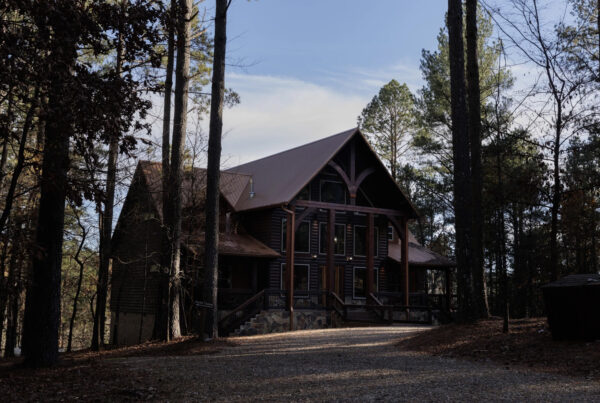There aren’t many ways to qualify for medical marijuana in Texas. And of course, recreational weed is illegal altogether. But cannabis cultivation is still big business here.
Hemp – marijuana’s non-psychoactive cousin – became legal to grow in 2019. And since then, Texans have spent billions annually on hemp products like delta-8: a chemical that can produce a high similar to marijuana.
The Department of State Health Services tried to ban delta-8 in 2021, but a hemp grower filed an injunction against the agency. Soon, the Texas Supreme Court will rule on whether the department can carry out the ban.
Chris Tomlinson, a columnist for the Houston Chronicle and the San Antonio Express-News, spoke to Texas Standard about the impact of the ruling. Listen to the interview above or read the transcript below.
This transcript has been edited lightly for clarity:
Texas Standard: Tell us about the coalition of folks who want to see delta-8 products remain available for purchase, not just this hemp grower.
Chris Tomlinson: Well, it’s an entire supply chain. You know, you have the farmers who grow it. You have the processors who turn it into a delta-8 product. And then, of course, you have the retailers.
But most importantly, the most powerful force seems to be the consumers. Veterans say that this helps them with PTSD, with anxiety. The Veterans of Foreign Wars have opposed any attempt to ban it by law. And that’s why the state agency ended up trying to act by itself.
How comparable is the high or the results from delta-8 to outright marijuana?
Marijuana is very powerful. You can get all different kinds of strains that have different impacts on you. There are some that kind of leave you sitting mute on your couch eating Doritos for hours.
Delta-8 is not that. Delta-8 is what gives you a sense of relaxation. It’s a mood enhancer. It’s much more mild, and I think, as a result, is much more popular.
How big is delta-8’s share of the state’s total hemp product revenue? Is it a big chunk of it or just a small portion?
According to the Texas Hemp Industries Association, the whole hemp business is worth $8.1 billion. The delta-8 portion is $6.8 billion. So it is by far the most important part of the hemp business in Texas.
The case before the Texas Supreme Court on this issue is about whether the Department of State Health Services has the authority to ban delta-8. So are the bigger questions here about the powers of the state agency or about hemp itself?
I think it’s about the powers of the state agency. We’ve seen a lot of conservative rulings out of the U.S. Supreme Court saying that state agencies should not have power that’s not been expressly delegated to them by lawmakers.
And Hometown Hero, the Austin-based company that’s fighting this case, they’re making a very similar argument that the Legislature had the opportunity to ban delta-8. Several bills have been introduced. None of them have passed. And therefore, the State Health Services should just leave this alone. They should not be getting involved in this.
The question of whether or not hemp is legal in the United States, Congress has already decided that. And that’s not really at issue. It’s whether or not the state agency can step in and wipe out a multibillion dollar business.
» GET MORE NEWS FROM AROUND THE STATE: Sign up for Texas Standard’s weekly newsletters
So why is the Department of State Health Services getting involved in this then? Are they specifically making a health argument here against delta-8?
They’re saying that because delta-8 was not expressly made legal, that they have the authority to act. We know that Lt. Gov. Dan Patrick and his conservative Republican colleagues in the Legislature have been pushing to ban delta-8 for years.
Another part of this is the medical marijuana community. They have not seen the sales that they were expecting because people know that if they can go buy delta-8 in the store and have the same benefit, then they’re not going to go to their doctor, get a prescription and then go to a dispensary and get the marijuana products.
So this is a civil war that’s been going on across the country, where marijuana growers have really gone to war with hemp growers.
Of course, the Texas legislative session kicks off again in January. Do you expect this to be an issue no matter what this court case comes out to be?
Lt. Gov. Patrick has assigned an interim committee to look at whether or not and how they can ban delta-8. This is still very high on his agenda. He is adamantly against legalizing marijuana and he thinks delta-8 is a slippery slope that needs to be stopped.
So yes, this will be back in front of the Legislature, no matter what the Texas Supreme Court decides.
Interesting. As states around us kind of move in the opposite direction with marijuana access, it feels to you like Texas is not going to make moves in that direction.
No, I think the state’s leaders have been very adamant they do not want to legalize marijuana. Lt. Gov. Patrick has said that he’s not going to do it as long as he’s in office.
So, no. Even though the majority of the states have legalized marijuana, even though the federal government is looking at reducing where marijuana ranks in terms of illegal drugs at the federal level, this is something that a conservative bloc in the Legislature is dedicated to preventing.














